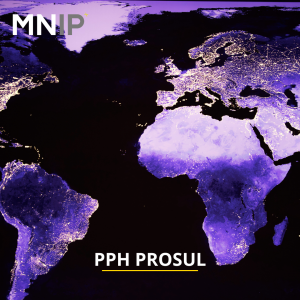 The PPH, or Patent Prosecution Highway, is a treaty signed by patent offices of different countries to hasten the patent granting process. The technological and economic advancements of recent decades have led to a significant surge in worldwide patent applications, specifically in the form of patent families – deposits of the same invention. An in-depth analysis of the global increase in applications can be found in the article that ranks the countries with the highest number of filed patents.
The PPH, or Patent Prosecution Highway, is a treaty signed by patent offices of different countries to hasten the patent granting process. The technological and economic advancements of recent decades have led to a significant surge in worldwide patent applications, specifically in the form of patent families – deposits of the same invention. An in-depth analysis of the global increase in applications can be found in the article that ranks the countries with the highest number of filed patents.
With the tremendous worldwide surge in innovative activity, there has been a corresponding rise in the need for legal instruments to safeguard intellectual property, specifically invention patents. As a result of this heightened demand, the so-called backlog has expanded, signifying the accumulation of applications awaiting assessment, which consequently causes a longer processing or examination period for patent applications until they are finally granted. This happens for various reasons, including a lack of organization in patent offices, administrative or managerial inefficiencies, and more.
To reduce delays in reviewing patent applications, several critical measures were implemented, such as establishing collaboration agreements between offices in different nations. These agreements intend to minimize rework and encourage cooperation and data sharing among offices to reduce the backlog.
Thus, the examination of a patent by one office can be utilized, to some extent, by another office in a different country that receives a patent application from the same family as the original filing. The main concept behind these agreements is for the initial patent examination office to share its findings with other offices across countries that receive applications for patents within the same portfolio. This grants access to examination and conclusions without regard for potential differences in decision-making among offices.
There are multiple versions of PPH agreements, including the Paris Route PPH, the PCT-PPH, the PPH Global, and the PPH-Mottainai. The latter is currently undergoing testing in Brazil as PPH-PROSUL and is in phase II of the Patent Prosecution Highway (PPH) Shared Examination Pilot Project. The project is inclusive of the patent offices of Chile (INAPI), Argentina (INPI-AR), Colombia (SIC), Ecuador (IEPI), Paraguay (DINAPI), Peru (INDECOPI), and Uruguay (NCPA).
The PPH-Mottainai enables applicants to expedite their examination if a similar application filed in a different member country has already been examined. This program is considered an evolution of Paris Rout-PPH, where only the results of the first office’s request analysis were taken into account. In the Paris Route-PPH, if any of the patent applications in a family with deposits in several signatory countries are examined before filing at the first office, their results cannot expedite the examination in any other office that receives another request from the family. The examination of the initial deposit is the sole consideration. In this manner, the PPH-Mottainai version embraced by PPH-PROSUL reduces repetitive tasks and waste, aligning with the Japanese term “Mottainai.”
Christian Slaughter
